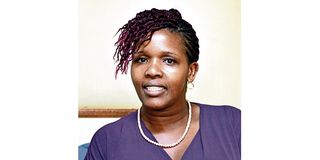Premium
We stopped taking alcohol, this is how our bodies changed

According to research, any amount of drinking can be detrimental to your health.
What you need to know:
- According to research, any amount of drinking can be detrimental to your health.
- Even so-called social drinkers are not immune to the impact that alcohol has on the body. Just how does addiction develop and what impact does it have on the body?
Waiters in bars serve patrons two or four beers at a go because it is unfashionable to bring out one bottle at a time, as a result, many end up drinking more than they had intended.
In Kenya, any occasion is an excuse to drink alcohol, a habit that has become highly glamourised, and glorified through creative advertisements, celebrity endorsements and curated content pushed by niche social media influencers.
It is portrayed as fun, sophisticated and relaxing, but the downside of it is that many Kenyans are gradually becoming addicts.

Alcohol is portrayed as fun, sophisticated and relaxing, but the downside of it is that many Kenyans are gradually becoming addicts.
A recent study on The Status of Drugs and Substance Use in Kenya by the National Authority for the Campaign against Alcohol and Drug Abuse (Nacada) shows that at least one in eight Kenyans aged 15 to 65 years, (about 3.5 million people) currently take alcohol, 2.5 million of these being men.
Alcoholism, or alcohol use disorder, is characterised by an inability to stop or control alcohol consumption despite adverse social, occupational or health consequences. What does alcohol dependence do to your body?
Also Read: It all started with a sip of Muratina - How drug, alcohol addiction robbed me 30 years of my life
What if you stopped, or cut back on alcohol, how will your body react?
Wendy’s struggle
Lifestyle spoke to three Kenyans who have battled alcohol abuse and addiction for years, as well as a myriad of health challenges before they sought help and managed to get on the road to recovery. For eight years, Wendy Kinyanjui, a Nairobi-based lawyer, partied and drank alcohol.
During this period, she says she struggled with physiological health issues. She was unable to sleep well and lost a lot of weight because she was not eating well. She also had persistent colds and flu, an upset stomach and acidity.
“I used to drink throughout my university and early professional life as a lawyer. I struggled with alcohol but I had an 8am to 5pm job, so it was kind of okay. One day I woke up on a Monday morning and I badly wanted to drink alcohol,” she says, adding, “There were so many things that were going wrong in my life. I finally realised that I had to be honest with myself.
I knew the main reason (for these problems) was the alcohol and the partying. I called my dad and told him I was struggling. He came to where I was, we talked about it and he admitted me into rehab that same day,” says Wendy.
It was in rehab that she began noticing her body changing. The first week, she was restless and suffered excessive sweating and anxiety. In the progressing weeks, she lacked sleep, but over time, things changed for the better.
“I remember when my family came to visit me after the first six weeks, there was a definite change in my demeanour. My skin had become brighter. I looked better. I had also gained weight because I was eating well,” says Wendy. She used to drink ciders and hard liquor such as gin and vodka and would suffer horrendous hangovers.
That she would have a clear head every Friday, Saturday and Sunday morning when she gave up drinking was “mind-blowing”. Today, six years after she stopped taking alcohol, she says that she feels stronger and healthier.
Now, what she craves are hikes. She has climbed Mount Kenya and plans to summit Mount Kilimanjaro later this year. Wendy says she now leads a more purposeful life.
Mike’s recovery
For Mike Ng’ang’a, 55, a Nakuru-based recovering addict, counsellor and founder of Taraji House Rehab Centers, his physical health had taken a beating due to heavy drinking.
Nine years ago, he was unwittingly admitted into a rehab. At the time, he had become paranoid, and half the time was “not there.” Severally, he entertained thoughts of taking his own life. Mike began socially drinking in the early 90s. His was a life of partying and binge drinking. By 2011, the drinking had become so bad that he was fired from his job in 2012.
After the sacking, his drinking worsened, and he would take any alcoholic drink he could get his hands on. By 2013, he had hit rock bottom. His wife took their children and left.

Mike Ng'ang'a, the Director of Taraji House Rehabs in a session with some of his clients in Nakuru County.
The bank auctioned him and he slept wherever he got drunk, barely eating. He says for every Sh1,000 he had, he would use Sh950 on alcohol. The remaining Sh50 would be spent on street food such as mutura.
“When you are a drunkard, you think that you're living a great life, but most times you are probably obese, out of shape, can’t walk far, always sweating, passing out, having shakes and prone to so many diseases,” says Mike, adding that when he was an addict, he had a lot of grey hair, which began disappearing when he stopped taking alcohol.
“You’d have thought I had dyed my hair. I was eating bad food and it was never enough, so I was thin. Have you ever seen a hanger walking? A hanger wearing a t-shirt? I was thin.
I had lost weight. I am a tall guy, so you could just see this tall thing walking. I was about 50 kilos. I was wasted,” Mike says of his health. Eventually, his family intervened and took him to rehab. He woke up one day after a drinking spree and found himself in rehab. “It was a big shocker. The first month in rehab was very difficult. Come month two, that’s when I got my "come to Jesus moment".
It hit me and I asked myself what I was doing here. From then on it has been a journey of recovery, one step at a time,” he says. Once he stopped drinking, he started noticing changes in his body.
“I felt healthier, fresher, I woke up and I was ready to face the day. I could move around more because I had more energy. Today, I am better mentally, I am more than capable of meeting any challenges that the day throws at me. I meet people and they tell me I look bigger; they even doubt that I was once an addict. I have packed on weight properly. I am not fat or obese but I am bigger and fuller,” he says.
At Taraji House Rehabilitation Centers located in Gilgil and Nakuru City, Mike opened his doors to another addict who went through the programme and beat his alcohol addiction.
Geoffrey’s turning point
Geoffrey Njuguna, 50, a Nakuru resident, had been battling alcoholism for 27 years. Following a series of misfortunes, including death in his family, he finally turned the tide to become a counsellor at Taraji House as well. “I started drinking alcohol immediately after school, back in 1995. I had just gotten a job as an untrained teacher. I drank alcohol for 27 years and was also taking narcotics, specifically marijuana. I used to mix alcohol and weed [bhang]. In 2019, I went to rehab after I had messed up my life completely. I lost my family. “
Geoffrey started taking alcohol and drugs after his wife, who was sick, died because he was unable to pay for her treatment. After his wife’s death, he sought solace in alcohol and bhang. His family took him to rehab but he relapsed.
“I had wasted their money, and they were very angry with me. I felt very lonely, isolated and sidelined because of what I had put them through. Later on in April 2023, I was jailed after being found in possession of two rolls of bang. I was imprisoned at Nyahururu G.K prison for 40 days,” says George.
While in jail, he thought of how he could turn his life around, and it occurred to him that dropping alcohol was the major decision he had to make to chart a new course in his life, build better relationships with his family and get healthier. “When I was drinking, I weighed 45 kilos. By the time I completed the rehab programme, I was weighing 62 kilogrammes. I no longer smoke or drink alcohol.
Now I can tell people how bad alcohol and drugs are and how they affect someone. Since I stopped drinking, my skin no longer reeks of alcohol and bhang. I smell fresh and I look good,” he says and adds, “When the time comes, I know I will be able to speak with and woo a lady, and marry again. I now have prospects of a bright future,” says George.
What experts say
Not everyone who drinks alcohol progresses to addiction, but Catherine Muthiani, a Nairobi-based counselling psychologist and certified addiction treatment expert, says at every stage of alcohol intake, be it experimentation or addiction, risks of developing health issues abound.

Catherine Muthiani, a Nairobi-based counselling psychologist and certified addiction treatment expert, says at every stage of alcohol intake, be it experimentation or addiction, risks of developing health issues abound.
Recent research makes it clear that any amount of drinking can be detrimental to one’s health. Ms Muthiani says the majority of those who partake of alcohol in Kenya start drinking as an experiment. They then transition from social drinking to instrumental drinking. At this stage, they drink because they desire a certain feeling or to manipulate their emotions. Then they evolve into alcohol addicts.
“Alcohol addiction is progressive. From experimenting with alcohol, and this could be out of curiosity where a majority of people start, to a point where the person drinks to meet a need (for instance help sleeping)."
The instrumental stage is where one consumes alcohol, not for socialisation but because one wants to cope with work stress, grief or heartbreak. At this point, they begin isolating themselves to drink, unlike the social drinkers who drink in the company of others. Ms Muthiani adds that binge drinking is also a concern. Some people can remain sober from Monday to Friday, but over the weekend, they binge drink.
"If a man takes more than eight drinks in one sitting and a woman takes more than six Mike Ng’ang’a, the Director of Taraji House Rehabs, in a session with some of his clients in Nakuru County, then they are binge drinking," she says.
Drinking, she says, will have an impact on one’s physical health. In the course of her work, she has found that the instrumental stage is where much of the physical body changes take place. People begin drinking without eating and this causes elevation of hydrochloric acid levels in the body. It is at this point that stomach ulcers and acidity develop. Blood pressure also becomes unstable.
“The skin will also begin looking dry. Progressively, in the late stages of addiction, you will find a person loses muscle tone and the lips redden. They also develop skin rashes and look darker,” she explains. When one drinks alcohol, the liver, which is the primary cleansing organ, is overworked, especially when a person drinks too much and fails to hydrate.
When the liver fails to do its job, there is yellowing of the eyes, and the skin becomes thin and almost transparent, and it begins to look puffy.
A person in this stage may also experience unstable heartbeats, develop an enlarged heart, diabetes and gastrointestinal problems such as stomach cancers, and throat infections.
Their immune system is also weakened and one becomes susceptible to opportunistic infections such as pneumonia and tuberculosis. Ultimately, rapid weight loss is often among the first things to be noticed because of a poor diet. According to Ms Muthiani, some of these health issues can be reversed, but it depends on the extent of the damage.
“One of the fatal conditions caused by excessive alcohol intake is liver cirrhosis. If one gets it, she or he is staring at death. Alcoholics who have developed stomach ulcers and stopped taking alcohol can be healed,” says the expert.
And what of social drinkers who participate in the trendy ‘alcohol drinking sabbaticals’ where they give up alcohol for a few weeks or months but take up drinking later? Some say the sabbatical helps them reduce their alcohol consumption tremendously, that on resumption, it no longer controls their life.
“It is possible to take these breaks if one hasn't developed a dependency, however, it is advisable to stop drinking completely,” says the addiction treatment expert. One can do this by creating an exercise regimen, eating well, dropping certain relationships and getting help.





